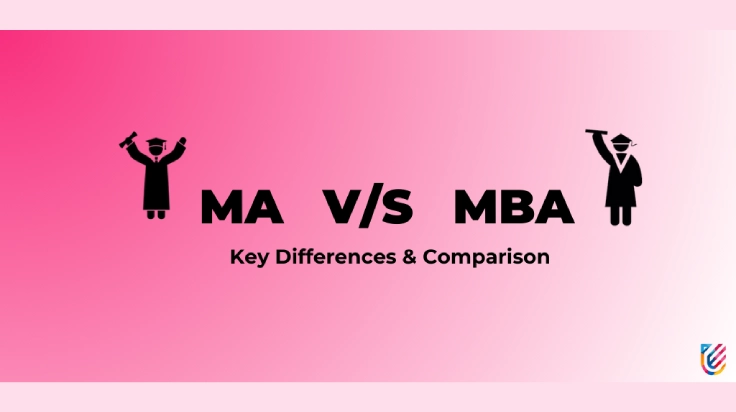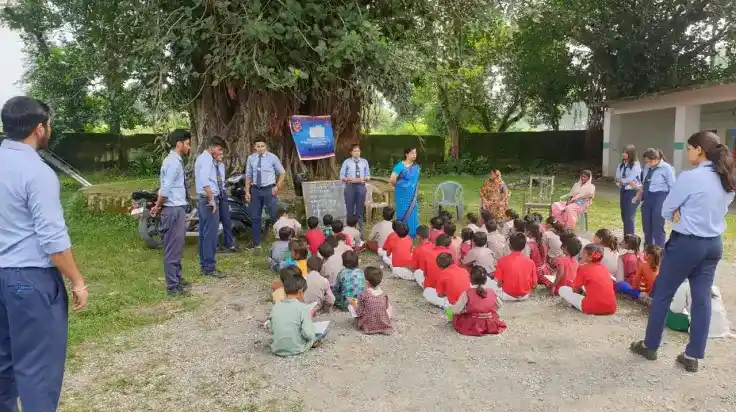Unlocking the human mind: Embarking on a journey with B.Sc. (H) Psychology and Behaviour
- Dr. Sudipa Nag
- Published 13/02/2024
.webp)
The study of the human mind and behaviour, commonly known as psychology, presents numerous course options, leaving candidates often uncertain about the most promising path for their future. The Bachelor of Science (Honours) in Psychology and Behaviour comprehensively delves into human behaviour, cognition, and psychological processes. This undergraduate program equips students with fundamental methods spanning cognitive, neuroscientific, social, developmental, and individual differences approaches. These are further expanded in advanced, research-led modules, facilitating a deeper understanding of social science and policy linkages.
Students enrolled in the program not only study core research methodologies but also develop crucial skills like experimental and questionnaire design, qualitative approaches like interviews and focus groups, and statistical analysis. This skill set enables them to design and execute high-quality, independent empirical research and effectively communicate their findings, contributing significantly to the real world.
The program places a dual focus on theoretical knowledge and the cultivation of professional skills applicable in various operational settings, such as psycho-social consulting, psychometric assessments, human resource management, training and guidance, and healthcare spanning public and private settings. In this article, we aim to provide an insightful overview of the course structure and the diverse array of knowledge covered upon completion of the undergraduate program in BSc Psychology.
The Key Focus Areas in this program are:
- Broad understanding of psychology as a social and behavioural science, exploring its connection with other disciplines.
- Appreciation and comprehension of the biological underpinnings of behaviour.
- Application of basic research methodologies and critical thinking.
- Skeptical inquiry into challenges involving human behaviour and mental processes.
- Analysis and synthesis using communication tools to disseminate information.
- Understanding and the application of cognitive, behavioural, and communication competencies in professional settings.
- Develop a good understanding of the research methods in psychology, and knowledge of statistics and data analysis, providing learners with the necessary tools for scientific inquiry.
This program also highlights the close connections between Biology, Chemistry, and Calculus, demonstrating how these learnings can be applied to real-life situations. In this program, we have incorporated field exposure and experimental learning that provides students with a comprehensive understanding of industry requirements.
As the course progresses, students will delve into the various subfields of psychology, exploring human cognition and social aspects of behaviour. They will gain insights into areas such as attention, memory, perception, interpersonal relationships, group dynamics, social influence, and developmental psychology, focusing on how individuals change and develop across their lifespan.
Methods of Psychology
The program places a strong emphasis on developing naturalistic observation skills using case studies, surveys, and correlational studies. It sheds light on factors and characteristics of the experimental method, providing a practical understanding of variables, experimental control, placebo effect, and double-blind procedure, applied through lab and field experiments.
Exploring Applied Areas
The degree program provides opportunities to explore applied areas in psychology, including abnormal psychology, health psychology, sports psychology, nutrition psychology, forensic psychology, industrial and organisational psychology, offering insights into psychological disorders, their diagnosis, treatment approaches, the interplay between psychological and nutrition factors with physical health, workplace behaviour, motivation, leadership, and organisational dynamics.
Research and Collaboration
Pursuing a Bachelor’s degree in Psychology and Behaviour involves engaging in research activities, and learning advanced research methods, experimental design, and data analysis techniques. These skills enable students to conduct research projects, contributing to the scientific understanding of psychological phenomena. The program may culminate in completing an honours thesis or a research project in the final year.
Specialisation and Electives
As a program, students can specialise in the following tracks: Counselling and Clinical Psychology, Organisational Behaviour, and Cognitive Neuropsychology. They have the flexibility to choose elective courses aligned with their interests. These electives enable them to deepen their knowledge in areas like clinical psychology, forensic psychology, educational psychology, or positive psychology, tailoring their educational learning to align with career aspirations and promoting them to pursue their specific areas of interest.
Practical Experience
The program underscores the practical application of psychology, offering students opportunities to engage in internships, practicum placements, or fieldwork experiences. These experiences allow learners to apply their knowledge and skills in real-world settings, gaining practical experience and insights into various psychology-related professions.
Professional Development
In addition to academic coursework, students participate in workshops, seminars, and events focused on professional development. These activities aim to build essential workplace skills such as communication, critical thinking, ethical considerations, and cultural competence. The school’s faculty regularly organise lectures by experts in different areas of psychology exposing students to the vast prospects within the field of psychology.
Future Scope
An undergraduate degree in Psychology and Behaviour equips students with a versatile skill set applicable across a broad range of professions. Graduates have the opportunity to make a positive impact on individuals and society by applying psychological principles to real-world situations. The program serves as a stepping stone for further education and career advancement, with many students pursuing advanced degrees for specialisation or entering the workforce directly, applying their knowledge in diverse fields such as counselling, human resources, education, marketing, or social services.
Dr. Sudipa Nag
The writer is Dr. Sudipa Nag, Assistant Professor, UPES School of Liberal Studies
UPES Admission Enquiry
Subscribe to UPES Blogs
Join our community for exclusive stories, insights, and updates
By clicking the "Subscribe" button, I agree and accept the privacy policy of UPES.






























